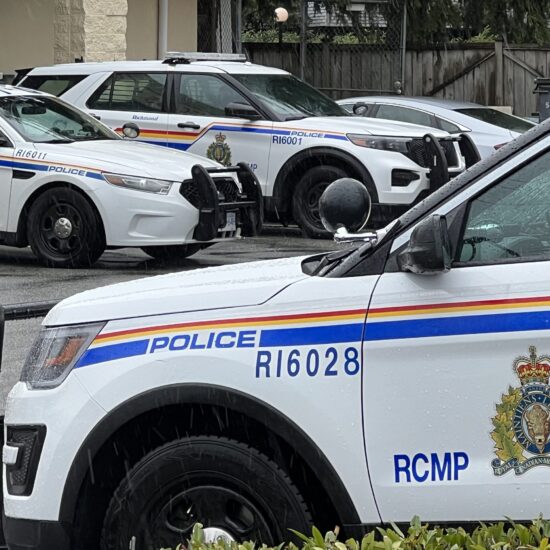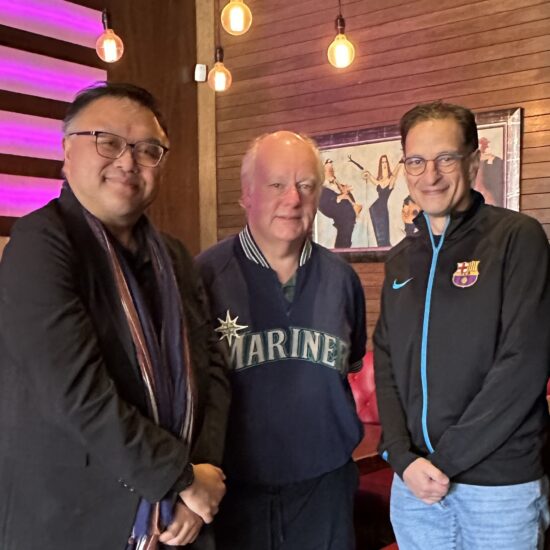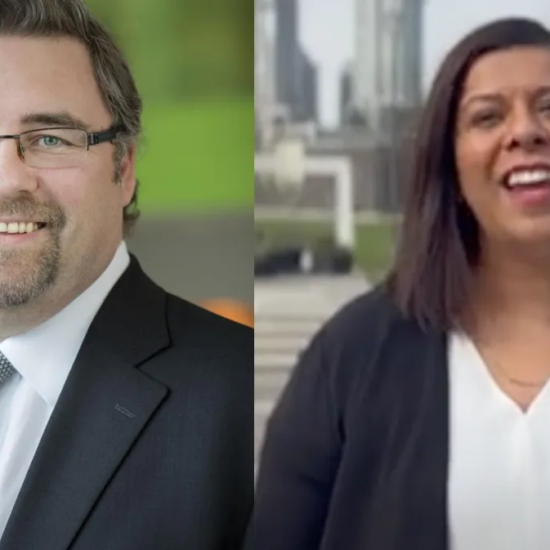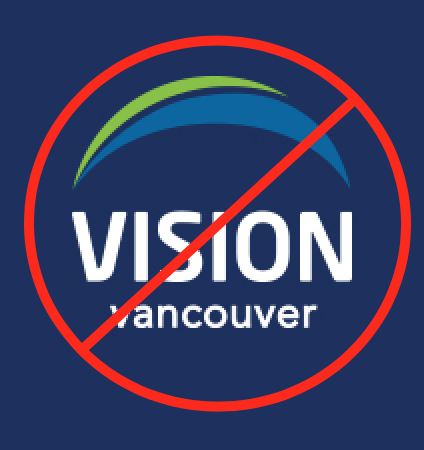
Bob Mackin
The end of Vision Vancouver’s decade-long majority on city council, and the lack of a majority party on the Oct. 20-elected city council, signals the end of a secret government.
It doesn’t mean an end to government secrecy. Governments will always try to keep secrets and reporters will do their best to expose them.
But the secret government at 12th and Cambie is over.
Vancouverites should rejoice.
Vancouver city council met most of the time in front of the public, as city council or one of the standing committees. Sometimes it declared it would meet in camera, behind closed doors. But calendars for Mayor Gregor Robertson, his chief of staff Kevin Quinlan and their correspondence confirm there were other meetings. For the Vision Vancouver caucus only.
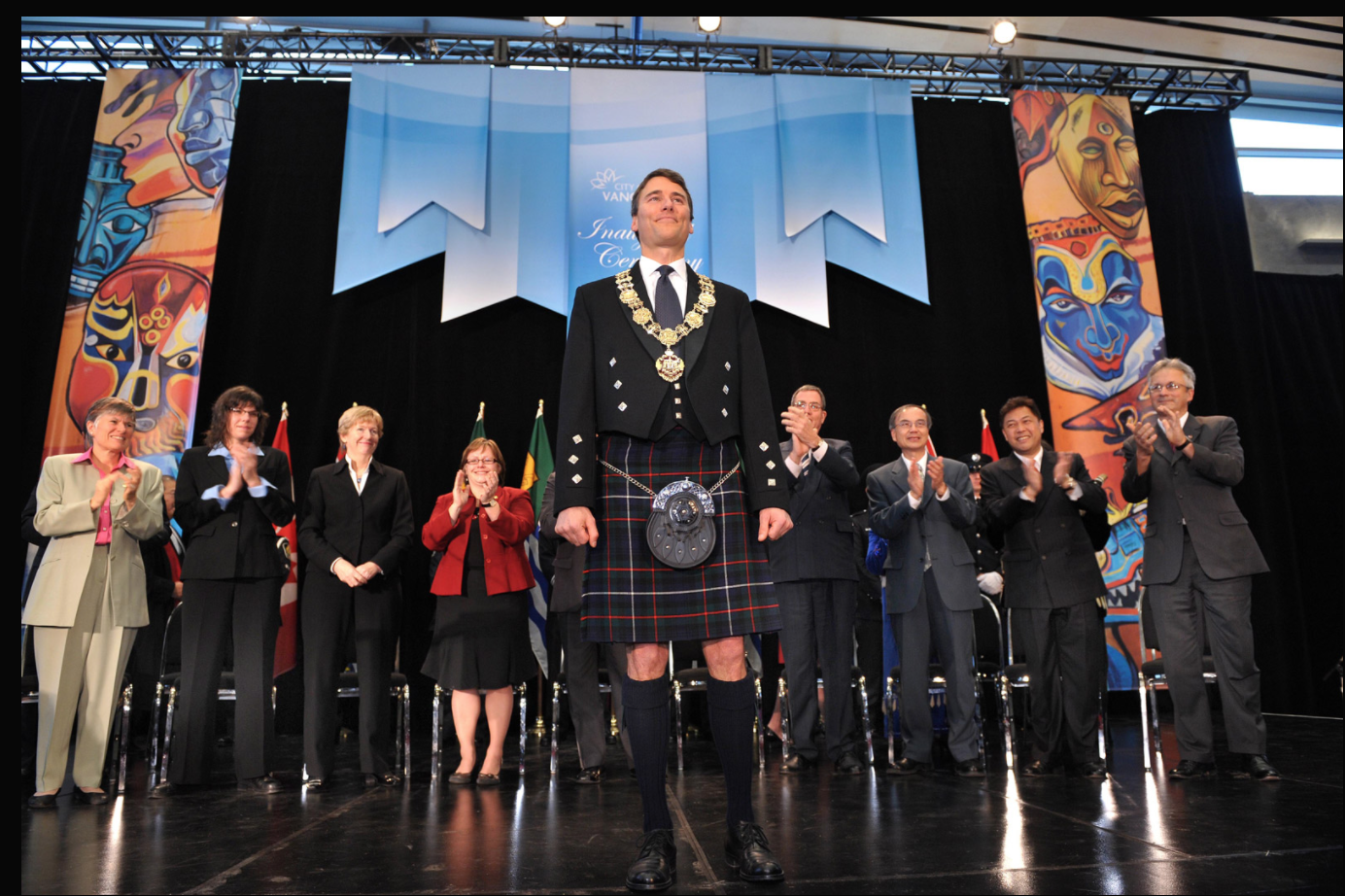
Gregor Robertson and city council at the 2008 swearing-in ceremony (Joshua Berson)
Councillors from other parties were not invited. You were not invited. What went on at these meetings is mostly a mystery.
When theBreaker asked for minutes and agendas for a series of caucus meetings held in 2017, the city’s freedom of information office said no records existed.
“The Mayor’s Office confirms there are no agendas or minutes for the caucus meetings held. It was also confirmed that there are no meeting notes,” said the response letter from city hall last November. “The caucus meetings are only verbal party updates and verbal discussions regarding regional, provincial and federal issues as well as upcoming events.”
Messages contained in Robertson’s secret Gmail account, discovered by theBreaker, indicate otherwise. The Vision Vancouver caucus meetings were also incubators for policy later adopted by the Vision council members, who rarely showed dissent in public meetings.
For instance, a May 22, 2016 email from Coun. Heather Deal to Robertson and Quinlan about a public art motion said: “Once you have signed off I will send it to caucus. It has to go to clerk before caucus on Tuesday.”
In the opinion of a prominent British Columbia municipal affairs lawyer, Vision Vancouver was breaking the law by running a secret government.
“If they are caucusing, they have a problem,” said Raymond Young in a September 2015 Vancouver Sun story. “That’s a council meeting.”
Young’s presentation to the 2015 Union of B.C. Municipalities convention on the laws surrounding open meetings said that a meeting includes any deliberation involving a quorum of members of a governing body to discuss any public business or policy over which they have control.
In Vancouver, where there are 10 councillors and the mayor, the quorum is six — Robertson plus Heather Deal, Kerry Jang, Raymond Louie, Andrea Reimer and Tim Stevenson. (The number was seven before Geoff Meggs quit council to become Premier John Horgan’s chief of staff in July 2017; it will soon be zero after the only remaining incumbent, Deal, lost.)
The Vancouver Charter’s section 165.1 is under the heading “General rule that meetings must be open to the public.” A council cannot meet behind closed doors, except to discuss land transactions, labour relations and legal matters. Even then, the council must publicize the meeting and state the legal basis for the closure. The names of all persons in attendance must be kept.
“Our citizens are entitled to more than a result,” said Young’s presentation. “They are entitled not only to know what government decides, but to observe how and why every decision is reached.”
A 2007 case about the City of London, Ont. said open meeting laws “imbue municipal governments with a robust democratic legitimacy.”
“The democratic legitimacy of municipal decisions does not spring solely from periodic elections, but also from a decision-making process that is transparent, accessible to the public, and mandated by law,” read the verdict. “When a municipal government improperly acts with secrecy, this undermines the democratic legitimacy of its decision, and such decisions, even when intra vires [within authority], are less worthy of deference.”
British Columbia’s Ombudsperson published a 2012 report called Open Meetings: Best Practices Guide for Local Governments. The decision to close a meeting, it said, must not be made hastily or without careful consideration of the principles and values of municipal laws. It also said local governments should record minutes for closed meetings, at least in as much detail as open meetings.
“Minutes should include a detailed description of the discussion, any specific documents considered, any motions, resolutions or votes, and any directions issued,” the report recommended. “This will not only provide a reference for attendees, but, when the minutes are eventually released, will inform members of the public and reassure them that the matter was properly discussed in a closed meeting and that procedural requirements were satisfied.”
Vision Vancouver did not follow the Ombudsperson’s advice. Nor did it live up to Robertson’s Dec. 8, 2008 swearing-in speech.
“When the city uses your money, you have a right to know where it’s being spent, and what it’s being used for. When leaders fall short of that standard, public confidence is shaken,” Robertson said. “I will not let you down on making city hall more open and accountable.”
The Office of the Information and Privacy Commissioner told theBreaker in January that it was powerless to act, because there is no duty to document law.
Horgan has not delivered on a duty to document promise that was contained in the party’s 2017 election platform.
A platform that was developed with input from Meggs.
Support theBreaker.news for as low as $2 a month on Patreon. Find out how. Click here.
Deal Caucus Email by BobMackin on Scribd









